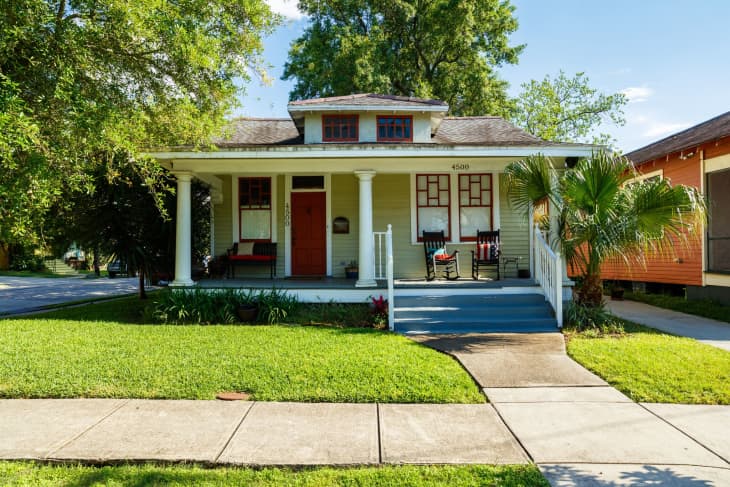What Even Counts as a “Starter Home” Anymore? Here’s What Experts Say.

If you’re looking to make your first real estate purchase, you’ve likely started doing your research on how, when, and where to buy a home. Conventional wisdom says first-timers should keep their eyes peeled for “starter homes,” or moderately affordable homes that a buyer can start out in, then eventually move out of when they have the funds to buy a larger place for the long run. But what does that mean in today’s high-priced market?
The answer depends on whom you ask. I spoke to several real estate experts to find out why there’s been a steady decline of traditional starter homes hitting the market, what you’re likely to find available instead, and how first-time homebuyers can make their first property purchase possible.
What is considered a “starter home” in 2023?
The textbook definition of a starter home hasn’t changed, but the appearance, overall size, and needs of a starter home have evolved, says Manhattan-based real estate agent Adie Kriegstein. She explains homes that are smaller and more affordable than others tend to traditionally be considered a good starter home. “Homebuyers’ needs and preferences aren’t what they used to be, and when you couple that with inflation and mortgage rates, a starter home truly is not what it used to be,” she explains.
The translation? A starter home in 2023 is smaller, a bit less updated, and far more expensive than starter homes were just five years ago.
A starter home can also vary greatly depending on the local market, says Farah Sutton, a real estate agent in Phoenix, Arizona. For example, the Arizona market has changed significantly over the past three years, and that means the starter home market is very competitive, as first-time homebuyers must compete with individual and institutional investors. “In addition to this competition for starter homes, buyers are also grappling with high interest rates,” she says.
What’s making it challenging to find and buy a starter home these days?
The lack of real estate inventory is one of the biggest challenges all potential buyers are facing in their markets these days, says Anna Story, a global real estate advisor in Blowing Rock, North Carolina. “The limited options mean once something ‘good’ is listed, it usually gets several bites, which makes most buyers feel discouraged,” she explains.
But being diligent and proactive can help: “Be ready to jump,” she says. “Your real estate agent should have several strategies in place to help you secure a deal.”
Sutton agrees, adding that buyers sometimes feel frustrated when they realize their first home might not be picture-perfect right away. “What makes it challenging when purchasing a starter home is managing expectations,” she says. “Nowadays, starter homes frequently require renovations due to the age of the home and deferred maintenance.”
With an open mind about how to address small cosmetic changes — such as fresh paint and new lighting — you’re more likely to find options that will fit into your vision of your first home with a little elbow grease and imagination.
Where can a potential starter home still be found?
The old adage “location, location, location” applies here, says Emily Clancy LoPorto, a Realtor on Long Island. “Starter homes can be just about anywhere,” she explains. “Decide where you want to be, and understand that a starter home is not going to check every single box. It’s the start, not the finish.”
Another perspective for those looking at smaller properties or working with a limited budget is to look for homes that have multiple-use spaces, she adds, such as a home office nook or corner rather than a separate room. “While having a dedicated space for all of these functions is nice, they will blow your budget,” LoPorto says.
What could help make a first home more affordable?
First-time buyers should research down payment assistance programs and grants for closing costs, says Veronica De La Cruz, a Los Angeles-based home lending officer at Citi. For example, homebuyers who work with Citi to purchase their first place can take advantage of their HomeRun Mortgage initiative, which helps lower your down payment, while their lender paid assistance program helps lower your closing costs.
Most importantly, keep your eyes on the prize, says Susan Tripi, a Realtor in Massachusetts. “Sometimes the right property becomes available early into the buying process, while other times it takes several months,” she says. “Stay patient and positive — and trust your Realtor’s advice and guidance.”